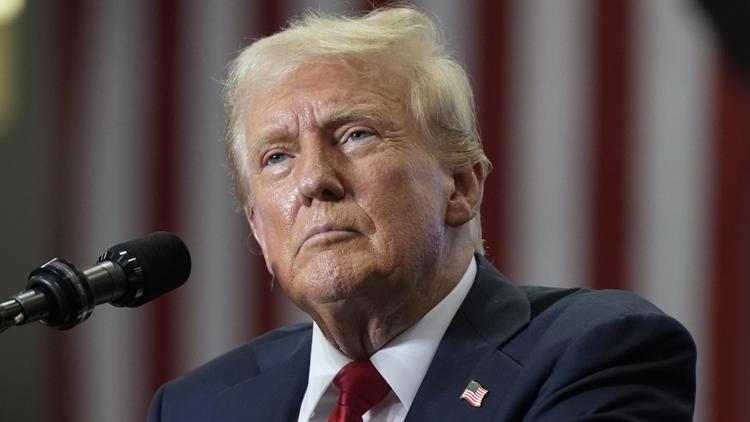Donald Trump was elected the 47th president of the United States on Nov. 6. Democratic presidential candidate Vice President Kamala Harris called Trump on Wednesday afternoon to concede the race and congratulate him.
A short time later, President Joe Biden also called Trump to congratulate him and to invite the president-elect to the White House, formally kicking off the transition of power ahead of Inauguration Day, the White House said.
After Trump won, several VERIFY readers, including Al, asked if the former president could run again in 2028.
THE QUESTION
Can Donald Trump run for president again in 2028?
THE SOURCES
- 22nd Amendment of the U.S. Constitution
- The National Constitution Center
- Annenberg Classroom, part of the University of Pennsylvania’s Annenberg Public Policy Center
- The White House
THE ANSWER
No, Donald Trump cannot run for president again in 2028.
WHAT WE FOUND
Donald Trump cannot run for president again in 2028. That’s because the 22nd Amendment of the U.S. Constitution establishes that an elected president can only serve two terms in office for a total of eight years.
The 22nd Amendment was ratified on Feb. 27, 1951, by a Republican-controlled Congress that championed the amendment after former President Franklin Roosevelt won four consecutive terms in office, according to The National Constitution Center.
The 22nd Amendment reads in part:
“No person shall be elected to the office of the President more than twice, and no person who has held the office of President, or acted as President, for more than two years of a term to which some other person was elected President shall be elected to the office of President more than once.”
That means an elected president can only serve two terms in office for a total of eight years. Since Trump has already served one term as president, he will only be eligible to serve for one more, even though the terms won’t be consecutive.
Some members of Congress have tried to repeal the 22nd Amendment since it was ratified more than 70 years ago, but the resolutions have never made it out of committee, the National Constitution Center says.
There is a loophole in the 22nd Amendment that allows someone to serve up to 10 years as president, the University of Pennsylvania’s Annenberg Public Policy Center explains. But it doesn’t apply to Trump.
If a vice president or other successor takes over for a president who can’t finish out their term, and that person serves two years or less of the former president’s term, they would be eligible to serve two full four-year terms afterward. But if the successor serves more than two years of the former president’s term, they can only serve for one more term afterward, the Annenberg Public Policy Center says.
Trump is the first former president to return to power since Grover Cleveland, the 22nd and 24th U.S. President, regained the White House in the 1892 election.
The Associated Press contributed to this report.



